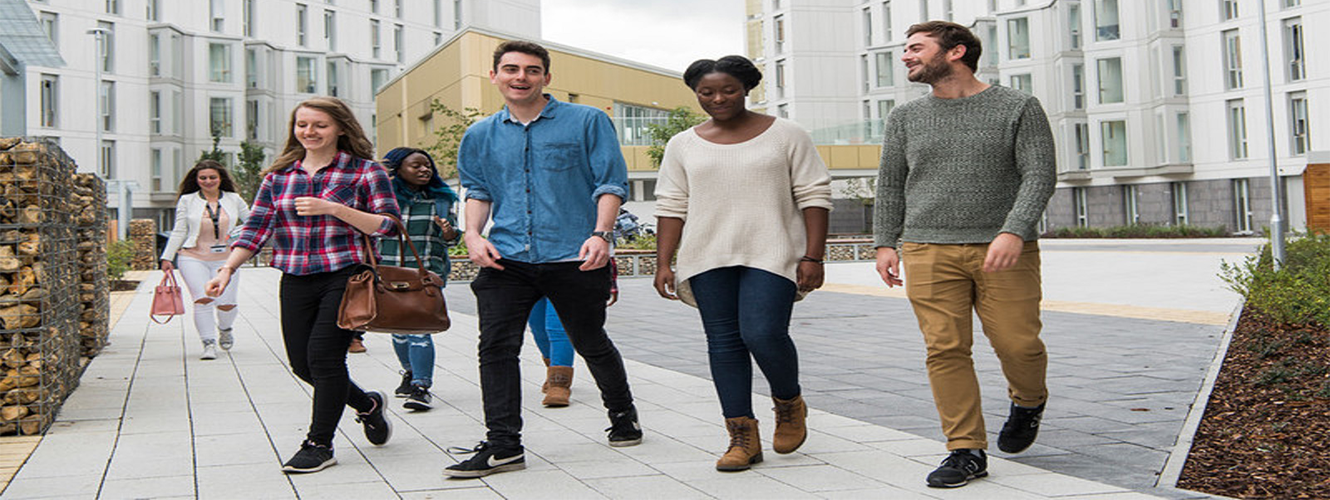UK116 EdPsyD Doctorate in Educational Psychology University of East Anglia
-
THÔNG TIN CHUNG
Our core principles
The EdPsyD programme is situated within a critical psychology framework and built upon three, interconnected core principles, namely:
- Social justice
- Ethical and social responsibility
- Reflective/reflexive practice
We place a high importance on the issues of equality, diversity, anti-oppressive and anti-discriminatory practice, inclusion, and the equalisation of power which serves the needs of children, young people and their families.
Our programme will encourage you to develop your own professional identity and expose you to a wide range of psychological theory, practice and research. We do, however, expect applicants to our programme, and subsequently trainees, to show a commitment to these core values.
Benefits of the course
Our programme offers:
- Established peer review groups to support with coursework, research development and practice issues.
- Personalised support from university-based academic advisors who are all qualified and practising Educational Psychologists. Plus, support during placements and thesis through fieldwork supervisors and research supervisors respectively.
- A research-active programme team.
- A focus on learning with and from communities, including two specialist multi-agency and a school-based placement. We also work closely with a range of external partners to offer special visiting lectures and extra-curricular activity. For example, in 2018, we welcomed the Eastern Region Educational Psychology Conference, which brings together colleagues from all 11 services that UEA serve.
- Embodied experiential learning opportunities.
- Links with the School of Education and Lifelong Learning’s ITT programmes, School of Social Work and Speech and Language Therapy. This has included input from Professor Gillian Schofield, co-author of the Secure Base Model (Schofield and Beek, 2009).
- Embedded assertiveness, eloquent challenge and conflict resolution training as part of our programme.
- Extended block training in therapeutic interventions (Y2) and research methodologies (Y1/2).
- A strong focus on dynamic, play and person-centred practices.
- Use of innovative techniques for assessment and intervention, including teaching on the use of play, puppetry, creativity, Forum Theatre and narrative therapy approaches.
- An exciting roster of external guest speakers and opportunities to invite your own speakers throughout Year 3 to help develop and extend your own areas of interest.
-
ĐIỀU KIỆN ĐẦU VÀO
As the Educational Psychology programme leads to a doctoral degree as well as preparing you for entry to the profession, we are looking for sound academic skills, evidenced through your qualifications, and a depth and breadth of high quality and successful professional experiences.
You must hold a degree that is eligible for the Graduate Basis for Chartered Membership (GBC) from the British Psychological Society (BPS). This can be an undergraduate degree in psychology, an approved conversion course or a Master’s degree.
We will normally look for a minimum of a 2.1 (or equivalent), but we will consider applicants from those with a 2.2 classification, whose experience or further qualifications demonstrate capacity to successfully complete the programme. This may include applicants who have substantial experience working with children and young people in a relevant role (well in excess of the minimum required 12 months) or who have a Master’s or higher degree in a relevant subject area.
If you hold a degree or qualification from an overseas university, it must have been approved equivalency from the BPS. Please see the AEP website for more information.
You must have the qualification that grants you eligibility for GBC before the application deadline. If the qualification that grants you eligibility for GBC is not from the UK or Ireland you will also be required to enter your BPS membership number at the application stage.
You will also be expected to demonstrate a minimum of 12 months full-time equivalent experience of working with children and young people. A minimum of nine months of this experience must be made up of paid employment.
We are not prescriptive as to what type of experience is ‘relevant’, only that you can meet the essential and desirable criterion set out on both the AEP and our website. Applicants are often received from a wide range of professional groups including teachers, teaching assistants, assistant educational psychologists, research assistants, social workers, community workers, and youth workers, amongst many others. We place a high value on diversity and are interested in how you have used and what you have learnt from your experiences.
There is no provision in the UEA degree regulations for Accreditation of Prior (Experiential) Learning. The programme is full-time, over three-years and attendance at all programme components is mandatory over that time, including the induction periods. The length of the programme cannot be reduced through the accreditation of prior learning or experience: all trainees are required to complete the full programme of training in order to qualify.
- ĐIỀU KIỆN NGÔN NGỮ
- HỌC BỔNG
- ĐỊA ĐIỂM
Tóm tắt
-
Phí ghi danh
0
-
Độ dài khoá học
3 năm
-
Kỳ nhập học
Tháng 10
Phí Cơ Bản
-
Loại Tiền
-
Học Phí
Trên năm -
Phí Sinh Hoạt
Trên năm -
Tổng







